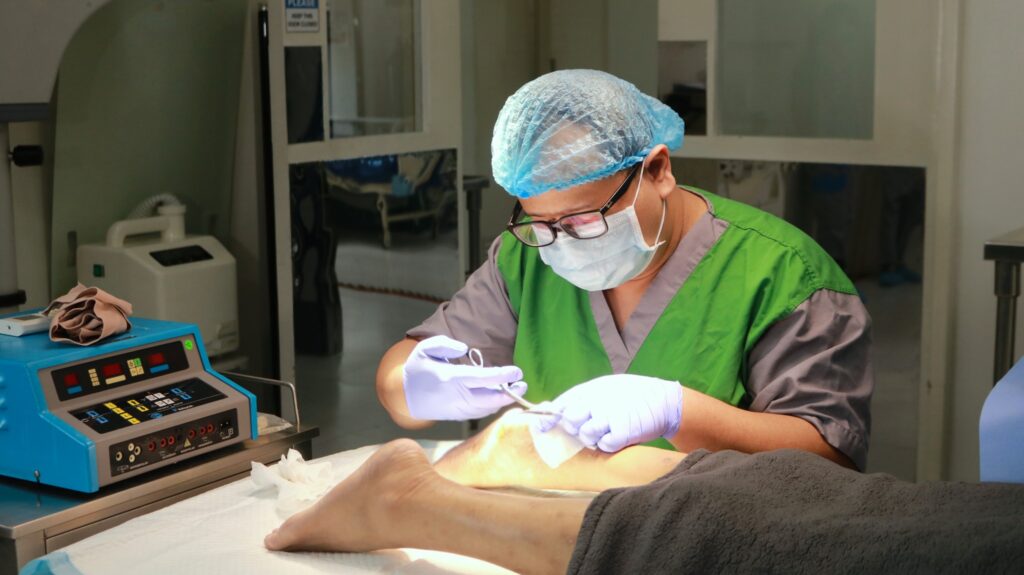Hormonal balance is a crucial element in maintaining overall health and well-being. When your hormones are balanced, you feel energetic, vibrant, and emotionally stable. However, hormonal imbalances can lead to issues like fatigue, weight gain, mood swings, and poor sleep. Achieving holistic hormone balance can seem challenging, but the good news is that natural methods such as sleep, diet, and lifestyle choices can make a significant impact. By focusing on these three aspects, you can support your body’s hormonal health and work towards achieving a more balanced, happier life.
The Role of Sleep in Hormonal Balance
Sleep plays a vital role in maintaining holistic hormone balance, as it directly affects hormone regulation. During sleep, your body produces key hormones such as growth hormone, which is involved in tissue repair, and melatonin, which regulates sleep cycles. Adequate sleep also helps to control cortisol, the stress hormone, which is crucial for maintaining a balanced mood and reducing inflammation. When you neglect sleep, your hormones become imbalanced, leading to a range of health problems.
To promote holistic hormone balance, focus on improving your sleep quality. A consistent bedtime routine, reducing screen time before sleep, and keeping your sleep environment cool and dark are effective sleep hygiene practices. Strive for 7-9 hours of quality sleep each night, as this is optimal for your hormones. Managing stress throughout the day, such as practicing relaxation techniques or mindfulness, can also help reduce cortisol levels, allowing your body to rest more deeply and restore hormonal balance.
Diet and Nutrition for Hormonal Balance
Your diet is a cornerstone of achieving holistic hormone balance. The foods you consume provide the essential nutrients that support your hormone production and regulation. Healthy fats, lean proteins, and high-fiber foods help to regulate hormones like insulin and estrogen, preventing imbalances that can cause weight gain, mood swings, or energy slumps. A nutrient-rich diet fuels your body and encourages optimal hormone function.
To support holistic hormone balance, include hormone-friendly foods in your diet. Omega-3 fatty acids, found in foods like salmon, chia seeds, and walnuts, help regulate inflammation and support brain function, while antioxidants found in leafy greens and berries protect against hormonal disruptions. Whole grains and vegetables are high in fiber, which helps balance estrogen levels and improve insulin sensitivity.
Conversely, processed foods, excessive sugar, and refined carbohydrates can disrupt holistic hormone balance. These foods spike insulin and cortisol levels, leading to hormonal imbalances. To maintain balance, reduce your intake of sugar, caffeine, and alcohol, as they can elevate cortisol and negatively impact other hormone levels, leading to long-term health issues.
Lifestyle Changes to Support Hormonal Health
Exercise is an essential component of holistic hormone balance, as physical activity directly influences hormone production. Regular exercise helps regulate insulin sensitivity, reduces stress hormones like cortisol, and stimulates the production of feel-good hormones like endorphins and serotonin. The right types of exercise can also support thyroid function, which is crucial for metabolic health and overall hormonal balance.
For holistic hormone balance, incorporate a variety of exercises into your routine, such as strength training, yoga, and aerobic activities. Strength training builds muscle, which can enhance metabolism and support insulin regulation. Yoga helps reduce stress and encourages deep breathing, which balances cortisol levels. Aerobic exercises, like walking or running, improve heart health and stimulate endorphin production, promoting emotional well-being.
Additionally, reducing chronic stress is essential for holistic hormone balance. Chronic stress leads to elevated cortisol levels, which can wreak havoc on your hormones and your health. To manage stress, consider mindfulness practices like meditation, deep breathing, and journaling. Taking time to unwind, relax, and enjoy activities that bring you joy can lower stress levels and help you achieve holistic hormone balance.
Other lifestyle factors like adequate sunlight exposure also play a role in holistic hormone balance. Vitamin D, which is synthesized when your skin is exposed to sunlight, is essential for regulating mood and immune function. Aim for 15-30 minutes of sunlight each day to support vitamin D levels and contribute to overall hormonal health. Avoiding environmental toxins, such as BPA and parabens found in plastics and personal care products, can also help maintain holistic hormone balance.
Signs Your Hormones Are Out of Balance and When to Seek Help
It’s important to be aware of the signs of hormonal imbalance, as they can indicate when your body may need additional support to restore holistic hormone balance. Common symptoms of hormonal imbalance include fatigue, mood swings, weight changes, irregular periods, skin issues like acne, and low libido. If you experience any of these symptoms persistently, it may be a sign that your hormones are out of sync.
When it comes to achieving holistic hormone balance, not every imbalance can be corrected through lifestyle changes alone. If you are experiencing severe or persistent symptoms, it’s important to seek professional guidance. Healthcare professionals can perform hormone testing to identify the root cause of the imbalance and recommend personalized treatments or therapies to help restore your hormonal health.
Takeaway
Achieving holistic hormone balance is within your reach when you focus on the key pillars of sleep, diet, and lifestyle. By ensuring you get quality sleep, eating a hormone-friendly diet, and incorporating stress management and exercise into your daily routine, you are actively supporting your hormonal health. While these natural methods can significantly improve hormonal balance, it’s important to listen to your body and seek professional advice if necessary. Start small, make consistent changes, and watch how your body begins to thrive as you restore balance to your hormones.





